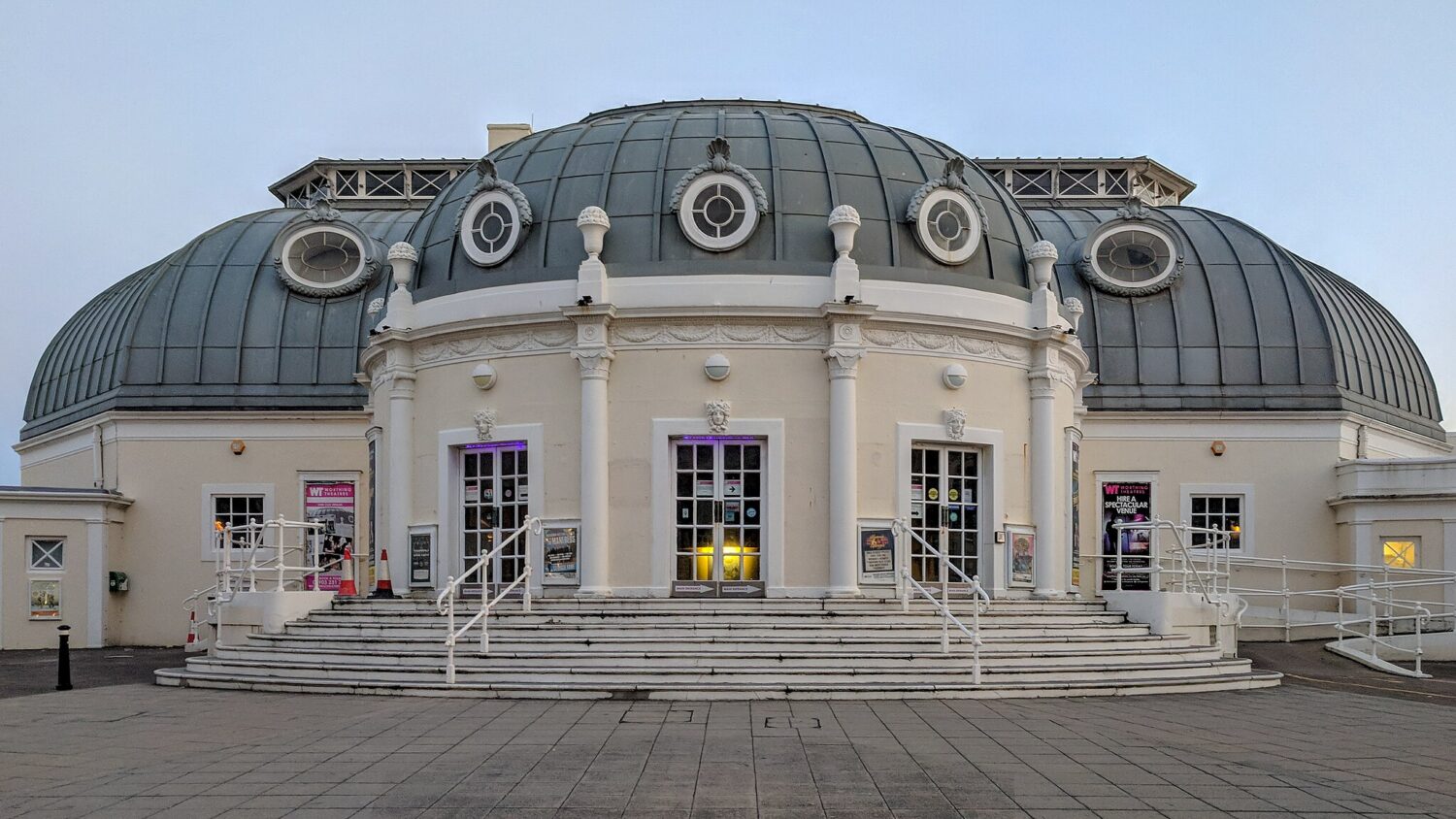Sea change
Worthing is exactly the sort of seat Labour will need to win to form a majority government at the next election. Since Labour’s dramatic victory in the local elections last year, Beccy Cooper has served as leader of the council. She explains what went right, and what the national party can learn
Worthing has a Labour council?
This is the incredulous response that the Worthing Labour group has slowly become used to over the past year. Despite its proximity to our much funkier neighbour, Brighton, our coastal Sussex town was for a long time known locally as ‘God’s waiting room’. Worthing Labour party was effectively three blokes sat round a kitchen table drawing lots as to which one would suffer the misfortune of putting their face on a leaflet for the annual council elections.
But over time, green – or rather red – shoots appeared.
The three blokes were joined by disaffected locals, families and younger people moving into the area who thought that it was time for a change. We rolled up our sleeves and got to work: year-round door knocking; street stalls; getting involved with and building new community projects; listening to residents tell us what was happening in their lives and how the council was helping (or not). Meanwhile, the Conservative administration was busy conserving itself behind the locked doors of the town hall, out of ideas and with fingers firmly in ears.
From winning our first council seat in 41 years in 2017 to taking control of the council with 23 seats in 2022, we built up a picture of who was living in our town, what their needs were, where the big problems were coming up time and again and what a Labour council could offer in response.
I doubt that it will come as any surprise that our main priorities are social housing (we don’t have any); urban greening – Worthing is a classic seaside town, buried under concrete and forgotten about from the 70s onwards; economic regeneration – our coastal version of the Preston model builds our climate emergency response into community wealth building, featuring a green business park, green skills building, and more; and a sustainable transport network (Worthing and the surrounding coastal areas are flat and urban – walking, cycling and public transport should be a no brainer).
In our first year of office, our priorities have sometimes had to take a back seat to the brick wall, slap-in-the-face-with-a-wet-fish cost of living emergency that has pervaded all aspects of our council work, and, as in the rest of the country, has seen many of our residents tightening their already tight belts. It has been a year of hard graft both within and without the council, from frontline foodbanks to providing increased housing support and benefits, which pushed our budget to the very limit. We were, frankly, relieved to have a balanced budget this March.
The cost of living crisis, combined with an ever more inept and embarrassing Tory government in Westminster, meant that this May many Tory councillors across the country followed their Worthing colleagues in exiting stage right, with residents exercising their electoral muscle in favour of Labour, Lib Dem and even Green councils. For Labour councils, this has the additional pressure of being a potential portent of things to come in an anticipated 2024 general election. But how to bridge the local conversation of who can run your council services with the national debate on who you should trust to run your country?
My own ward, Marine, was seen as true blue right up to the moment we won our first seat in 2017. It is fairly affluent, and has many residents in the expensive bit nearest the sea who would be pretty stereotypical Tory voters of old: business owning or retired, and generally white, middle class and older, in Worthing to enjoy a quiet life by the coast. The Tories took their postal votes and enjoyed years of success without ever asking their voters how they were getting on.
When we started knocking doors in this Tory stronghold, we found people who had not been listened to in decades. As you might expect, they had a lot to say – most of all that they wanted their town to be taken care of and to be a safe place to live. As the conversations went on, many of them expressed and agreed with the idea that a safe, cared-for town is a place where all members of the community have a warm, decent home; where elderly people can put their heating on without fear of going into arrears on their energy bill; where parents can feed their children decent food, bought from decent wages in a good job; where people of all ages can meet in public spaces that are clean and green and make them proud to call this place home; and where our sea and our air is unpolluted, allowing us to be healthy and our natural environment to thrive. In other words, the Tory voters of old wanted a fair, green town and they were willing to help us to create that.
My experience of the 2017 and 2019 general elections was that these local positive conversations were often undermined by the perceptions of politicians in Westminster. This is not at all surprising given the amount of media coverage that national policy receives and the messages that people digest via their social media feed.
For places such as Worthing, where there are two potentially winnable seats for Labour, the key will be to show up on the doorstep with national policies that we can easily demonstrate will allow our local communities to thrive. From education to health and social care, transport to environment, housing to sport and leisure, our local residents want to know that we understand the cost of living issues that have kicked their feet from under them and that we have a plan to redress the unfairness and the imbalances.
Our voting public are not the 0.1 per cent. They are the people down my road who are looking after their grandchildren while their daughter works two jobs to cover the rent. They are the family across the street who have an Italian mum who is still unsure about her place here after Brexit. They are the retired couple on the seafront, scared of the young people in the hoodies on their street corner (who, as it turns out, have literally nowhere else to go after 8pm on a Friday evening).
National elections can be won by both enabling and building on the work of local politicians to reduce inequalities across our cities, towns and villages. A brave national policy to realise real devolution of power and resources to local structures would allow communities to build trust with local politicians. Making the case that you might elect your MP to make sure your local decision-making bodies have the power and the funding that they need to ensure your hometown is fair and thriving would be a groundbreaking pitch – and a far cry from the political rhetoric of late, where power is concentrated in Westminster and local governments enter a Hunger Games-style tournament for levelling up scraps. There will, of course, be national and global issues that cannot be devolved; but even these will have an impact at the local level – indeed, if an issue did not have an impact at the local level, who would care about it? If we understand this relationship, then we can draw a direct line between ensuring our communities are fair, green and welcoming and the work of our MPs in Westminster addressing issues like immigration or funding public services.
In an election, you are only as good as your candidates, your comms and the team you have on the ground. Local elections are great foundations for building these cornerstones. Local council and community work can also foster the narratives that allow brave, potentially transformative national policy to be translated into living, breathing pragmatism that improves our everyday lives.
Image credit: The wub, CC BY-SA 4.0 via Wikimedia Commons

